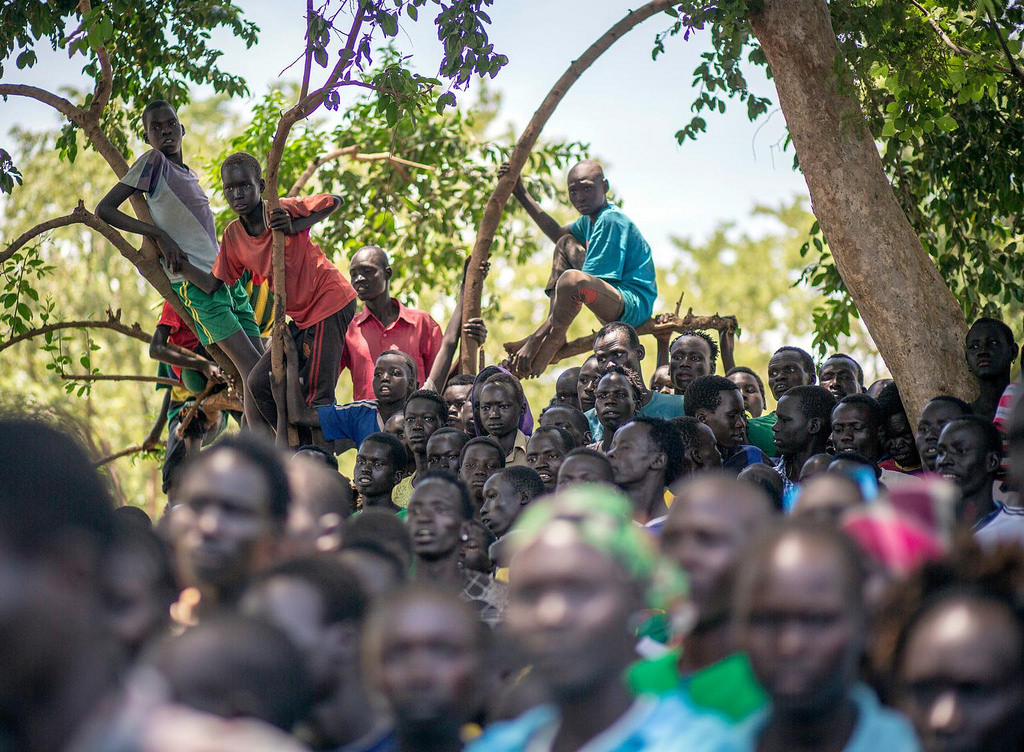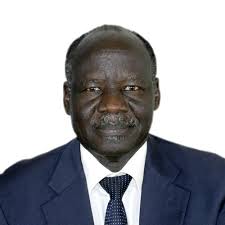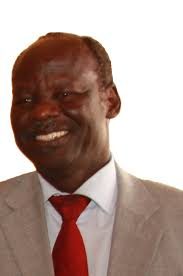South Sudan: Will local concerns sink the National Dialogue?
Much violence is driven not by national politics but local – and often more intractable – disputes around security, sovereignty, land and identity.

Photo: UNICEF Ethiopia/2014/Ose.
Amidst a deepening humanitarian crisis and ongoing fighting across South Sudan, President Salva Kiir launched the widely-hyped National Dialogue last month.
These talks are intended to bring an end to the deadly conflict and come up with wide-ranging reforms. They are expected to include delegates from political parties and civil society as well as international organisations and regional observers. Kiir explicitly refused an invitation to his former vice-president and now rebel leader, however, saying “Everybody is welcome to participate in the national dialogue except Riek Machar”.
President Kiir has described the dialogue as “both a forum and process through which the people of South Sudan can gather to redefine the basis of their unity as it relates to nationhood and sense of belonging”.
But while some are cautiously optimistic, the initiative has drawn criticism. Some complain that the talks do not prioritise a cessation of hostilities, that they fall short in terms of consultation and inclusion, and that the environment is not neutral.
Others question the government’s commitment. They see the declaration of dialogue as a tactical move to buy time until the rainy season passes in a few months. They condemn the talks as “one-sided” and claim that they are a decoy to allow government troops to reorganise and replenish.
Some within the dialogue process have attempted to quell these concerns. Co-chair of the National Dialogue Angelo Beda commented: “I would like to assure all the people of South Sudan and their friends the world over that my team will, with the given political capital from the leadership, ensure inclusivity, integrity, and transparency of the National Dialogue process.”
Much about the talks is yet to be established, including a confirmed timeline, agenda, venues and delegates. But there is a degree of optimism that this is at least a start.
However, it remains to be seen if the many grievances and demands of disparate communities will be accommodated in the discussions. Many of the tensions around the country have little to do with the quest for the presidency or national politics at large. Instead, it is more local – and often more intractable – disputes around security, sovereignty, land and identity that generate conflict. What are these, and can they be resolved in the talks?
The struggle over community sovereignty
Before gaining independence in 2011, what is now South Sudan was a collection of sovereign ethnic nationalities. These groups have maintained much of their autonomy since then, and community preservation is still at the forefront of many concerns.
In the absence of a social contract binding disparate groups into a cooperative national political society, local ethnic communities find solace in their own sovereignty. It is within these settings that people derive social and economic wellbeing, find a sense of cultural heritage, and seek solidarity.
The only way to get these communities to concede certain powers and become an active part of the broader state is through meticulous nation- and state-building projects that promise security and developmental progress.
So far, pragmatic and realistic strategies along these lines have been severely lacking in South Sudan. To succeed, the National Dialogue will have to provide the right environment and build the trust necessary to bridge these deep and long-standing divides.
Land is life
Some of the violence in South Sudan is motivated by tussles for political position or against perceived marginalisation. But much conflict is also caused by more localised disputes over land.
In the Equatorias, Western Bahr El Ghazal, and Upper Nile, there has been fighting over territory and perceived cultural subordination. The Arrow Boys in Western Equatoria reportedly oppose the government in protest at what they see as pastoralist communities encroaching on their farmlands. Meanwhile, the Agwelek Forces in Upper Nile are partly activated by fears that the government wants to seize lands belonging to the Shilluk.
Conflict is also partly catalysed by desires to reclaim land following the turmoil and displacement that came with the country’s two-decade liberation war with Sudan. In this period, many people were uprooted. After the end of the war, some opted not to go back to their areas of origin. Contests over land where they settled have sometimes turned violent.
In South Sudan, land is synonymous with economic wellbeing and community integrity. Land equals life. This is why resistance against land encroachment and the expanding dominance of other groups can serve as such a potent rallying cry. It is at the heart of much of the violence.
For the various groups that face such threats, any peace deal that emerges from the National Dialogue may have to include the return and protection of land to be acceptable.
Who will maintain security?
The ongoing conflict in South Sudan has engulfed almost every part of the country. The situation has never been more horrendous. Civilians are often targeted, leading to widespread killings and even more displacements.
Thousands of people are now confined in Protection of Civilian Sites (PoCs), while hundreds of thousands have crossed the borders into neighbouring countries. It is unlikely these individuals will return home under the same security arrangement as before.
The war also has strong ethnic and regional dimensions. The government relies on ethnic militias, while rebel groups primarily recruit from their own ethnic bastions. These rebels and opposition factions are now saying that they will not trust the lives of their families to government forces or their allied militias.
They say they must maintain security themselves. This is a matter of life and death. But it would be a tall order for the government to accommodate such an arrangement in the national talks.
How many regions?
Historically, South Sudan was made up of three regions: Upper Nile, Bahr El Ghazal, and Equatoria. These were later subdivided into ten states in 1994, and then even further into 32 states under President Kiir. It is in this latest configuration that South Sudan has experienced its most extreme and widespread ethnic targeting and fratricide.
Amidst the carnage and growing communal mistrust today, it is likely that some state representatives will push for federalism or a return to broader regionalism in the National Dialogue. This would not be a panacea, but may at least provide sanctuaries against ethnic cleansing. Under larger regions, several ethnic groups coexisted in the same state, reducing catalysts for ethnic targeting.
Will the talks succeed?
While progress is being made towards the holding of the National Dialogue, there are fears over both its design and the compatibility of the demands that will arise. South Sudan’s conflicts encompass a vast range of historical, political, social and economic disputes and grievances. The tensions span from the corridors of power in Juba to the local level across all 32 states. They involve some personalised tussles, but also – and more importantly – many comprehensive structural grievances and problems.
The government can be commended in calling the National Dialogue, but at the same time, it is clear that it is entering the process in a position of relative strength. This means it may be less open to demands from a wide variety of opposition groups, rebels and state representatives. But unless the talks can resolve complex local crises with deep roots, there is little hope they will resolve regional let alone national ones.
Editor’s Note: The views expressed in the “Opinion Page” are solely the opinions of the writers. The veracity of any claims made are the responsibility of the author’s and are not necessarily endorsed by The Malakal Post. The Malakal Post, reserves the right to edit articles before publication. If you would like to submit an opinion article or analysis, please email your article at: info@malakalpost.com















